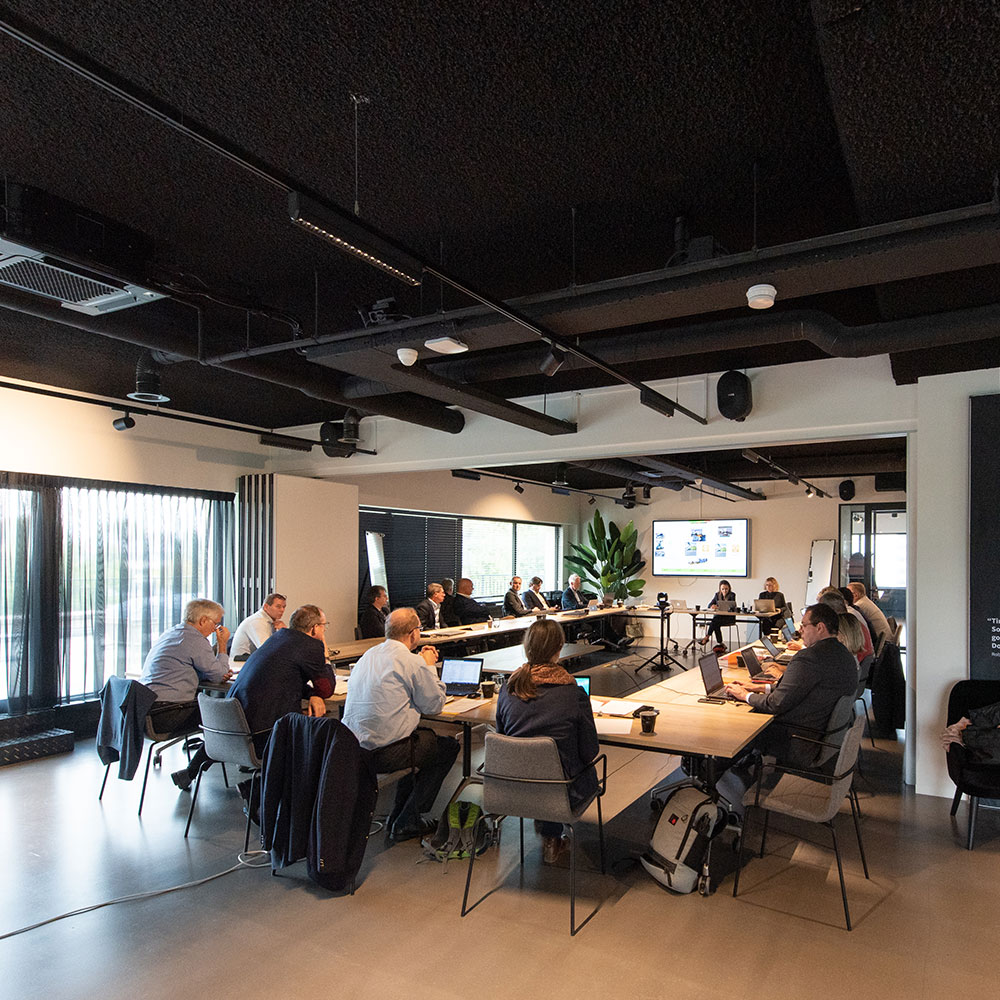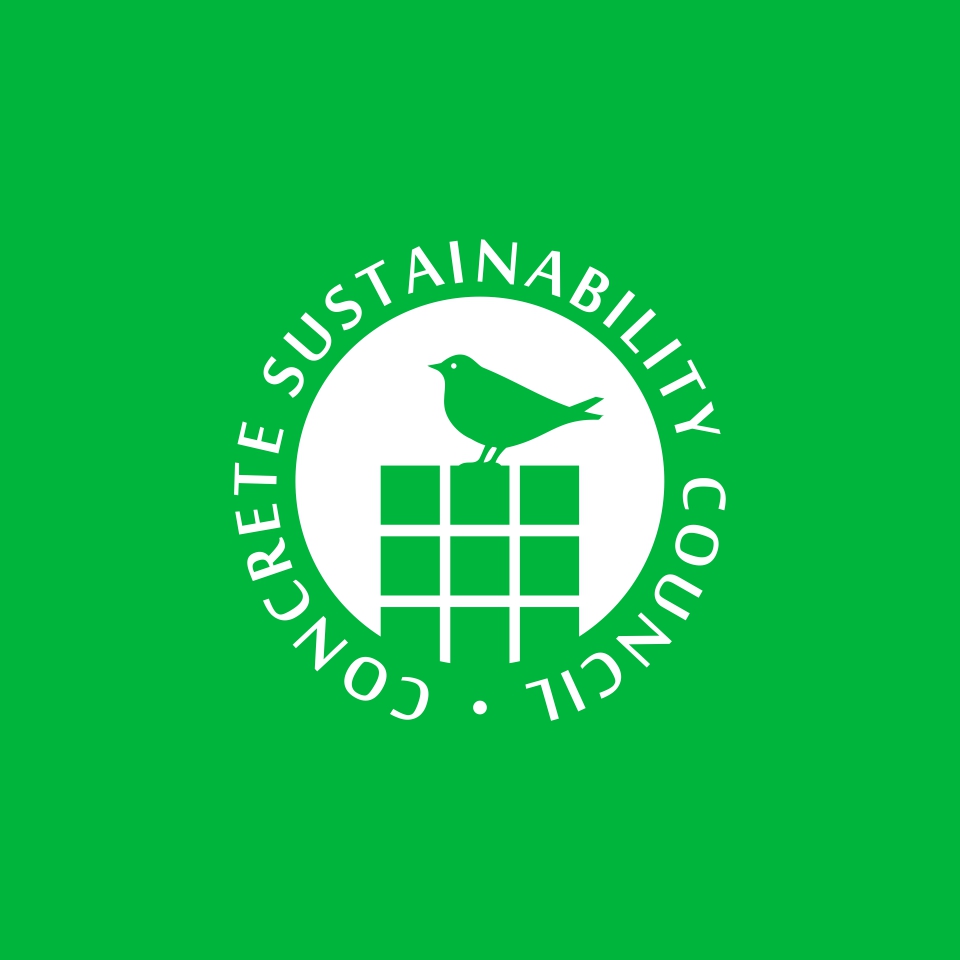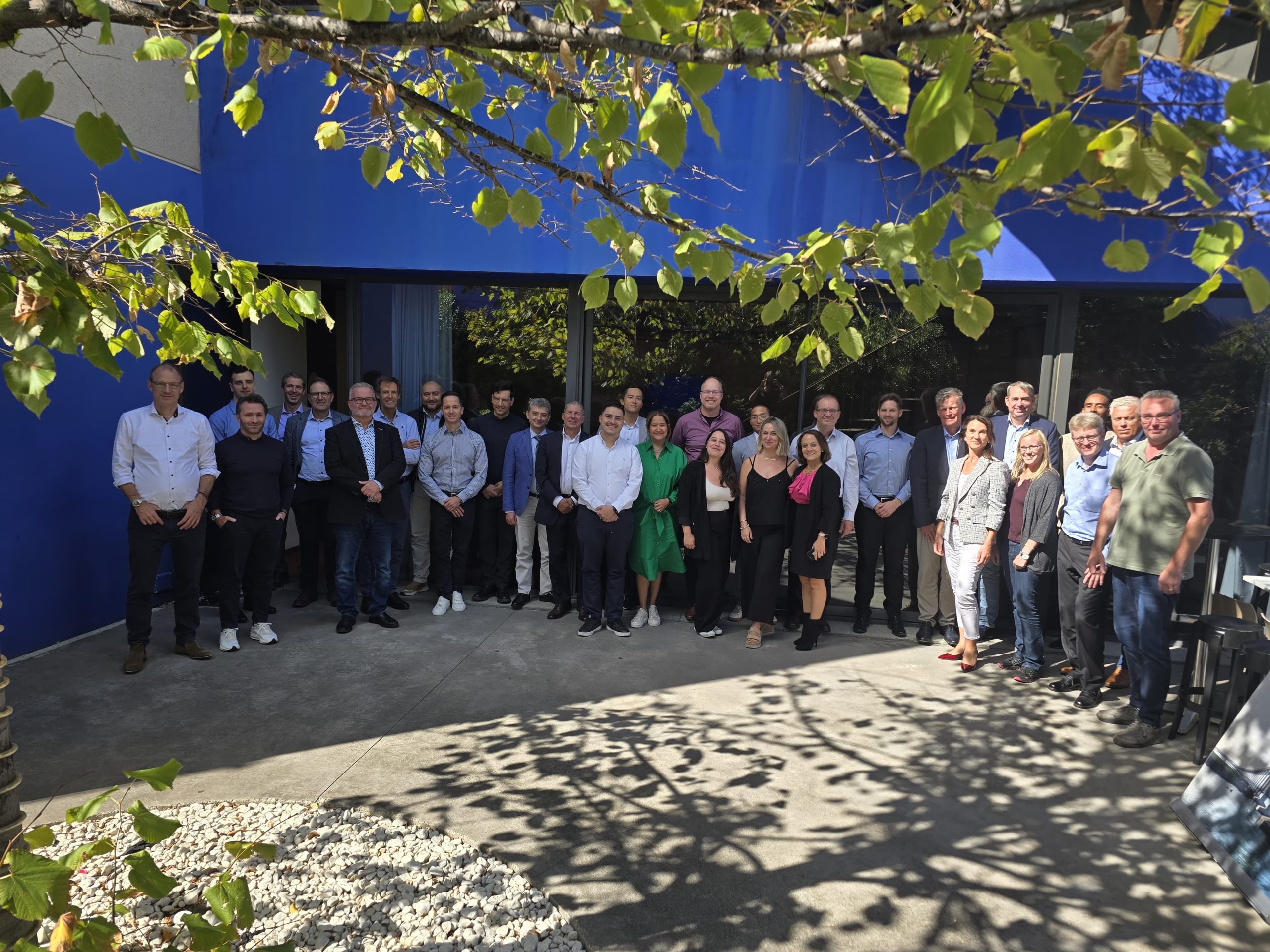
About us

Who we are
Concrete industry partners from Europe, USA, Latin America and Asia initiated the development of a global responsible sourcing certification system, designed to help concrete, cement and aggregate companies obtain insight in the level to which a company operates in an environmentally, socially and economically responsible way.
Concrete is the world’s most widely used building material. By creating a certification system for responsibly sourced concrete, the Concrete Sustainability Council (CSC) promotes and demonstrates concrete as a sustainable building material to enable informed decision in construction. It is our vision to build a sustainable, safe, durable and comfortable future.
Goals and objectives
Demonstrate how the operators are minimising impacts through responsible sourcing.
Raise awareness of the positive attributes of concrete and
Be transparent, and report on agreed goals/targets.
Be recognised by (global) sustainable certification systems and financially valued in green procurement government policies.


Supply chain certification
Concrete industry partners from Europe, USA, Latin America and Asia initiated the development of a global responsible sourcing certification system, designed to help concrete, cement and aggregate companies The certification includes the complete concrete supply chain: cement producers, aggregates suppliers and concrete manufacturers. The certification takes place in the categories management, environment, the social aspect of sustainability as well as in the category economy.
Governance
The CSC Executive Committee is responsible for all CSC activities and stakeholder engagement.
The CSC Technical Committee is responsible for the CSC technical manual, registration and certification process.
The CSC system awards additional innovation points. The CSC Innovation Committee qualifies whether a process or solution qualifies is innovative at regional and/or global level.
The Advisory Committee advises and gives input to the CSC’s program of work and on potential new areas of focus as well as the structure and content of the CSC certification system. The Committee is conceived as a forum for bringing together representatives of some of the world’s leading civil society organisations, academics, and others (such as experts) who provide input, analyse, understand and present ideas on ways to assess and improve the responsible sourcing of concrete through the CSC certification system.
The Communication Committee is responsible for CSC global brand identity and external communications.

Our Legal Base
Geneva is home to numerous global and multi-stakeholder organizations, offering a trusted and internationally respected environment for associations working across borders.
These foundations enable CSC to serve as a credible, independent platform for promoting responsible sourcing practices across the global concrete sector.
CSC does not pursue commercial activities and is not involved in the manufacturing or sale of concrete or related products. We do not sell certified materials, packaging, or labels. Our focus is on maintaining and promoting a globally recognized certification system that supports the implementation of responsible sourcing across the industry.
How We Are Funded
CSC’s work is primarily funded through:
Registration Rights ( RR)– paid by concrete producers and supply chain partners (e.g., cement, aggregates) seeking certification
Annual Membership Fees – paid by full members, affiliate members, and institutional partners
Annual Certification Fees – paid by CSC-accredited Certification Bodies, based on the number of certificates issued each year
Sponsorship Fees – contributed by organizations that wish to support CSC’s mission and activities
In 2024, CSC reported an income of CHF 1.0 million and held total assets of CHF 1.8 million. Approximately 75% of funding came from license permit fees, while the remainder was made up of membership fees, sponsorships, and certification-related royalties.
The Association is not subject to an audit requirement as it does not exceed total assets of CHF 10 million, does not generate a turnover of CHF 20 million or higher, and does not have an average annual total of 50 full-time staff.

How We Use Our Funding
All income is reinvested into CSC’s core operations and services, including:
-Setting up and maintaining the CSC Certification Systems
-Explaining and promoting -responsible sourcing practices for concrete and its constituent materials throughout the construction sector
-Managing multi-stakeholder governance and regularly updating our standards
-Maintaining and developing IT systems and certification infrastructure
-Conducting outreach, communications, and market development initiatives
-Providing training and onboarding for members, certification bodies, and stakeholders
-Supporting Regional System Operators in key countries or regions
-Protecting and managing our trademark globally
-Developing strategic partnerships and new sustainability tools
CSC is committed to transparency, independence, and impact. Our funding model enables us to continuously improve our system and promote sustainability performance in the concrete sector worldwide
.

Stakeholder Engagement and Public Transparency
At CSC, we prioritize meaningful stakeholder engagement as a fundamental pillar of
our certification system. We ensure that the nature of this engagement is publicly
available, fostering transparency, inclusivity, and continuous improvement.
Multi-Stakeholder Involvement in Standard Development
CSC’s certification system is built through active collaboration with key stakeholders,
including industry representatives, sustainability experts, civil society organizations,
auditors, and academia. Their contributions help shape the criteria, performance
levels, and continuous evolution of our certification framework.
● Stakeholder Consultation: We conduct public consultations when revising our
standard, ensuring that diverse voices are considered in decision-making.
● Technical Committees: Experts from different sectors participate in our
working groups to refine technical requirements and implementation
guidelines.
● Public Documentation: The structure and governance of our stakeholder
engagement process, including reports from public consultations, are
available on our website (www.csc.eco).
Open Access to Certification Processes and Decisions
We make our stakeholder engagement mechanisms transparent by publicly sharing:
● Certification Requirements and Technical Manuals: Available on our website,
detailing how stakeholders can engage in the certification process.
● Public Registry of Certified Companies: Our database of certified
organizations ensures visibility into who has achieved certification and at what
level.
● Grievance and Feedback Mechanism: Stakeholders can submit concerns or
provide input on the certification process via an open, accessible complaints
and appeals procedure.


Engagement with Global Sustainability Initiatives
CSC actively collaborates with international sustainability-focused initiatives to drive
systemic change in the construction industry.
● We are members of the Global Cement and Concrete Association (GCCA),
contributing to industry-wide sustainability advancements.
● We are also members of the Global Alliance for Buildings and Construction
(GlobalABC), where we engage in discussions on sustainable materials and
construction practices.
● Our work has been supported by the One Planet Network, reinforcing our
commitment to sustainability and responsible sourcing within the built
environment.
● Additionally, we work with regional and international stakeholders to ensure
our certification framework aligns with global sustainability priorities,
including the UN Sustainable Development Goals (SDGs).

Public Availability of Governance and Decision-Making
CSC maintains transparency in governance by publishing information on:
● The structure of its Board and Advisory Committees, ensuring diverse
stakeholder representation.
● Annual Reports that detail progress, impact, and stakeholder feedback.
● Policy Updates and Public Announcements, ensuring stakeholders remain
informed and involved.